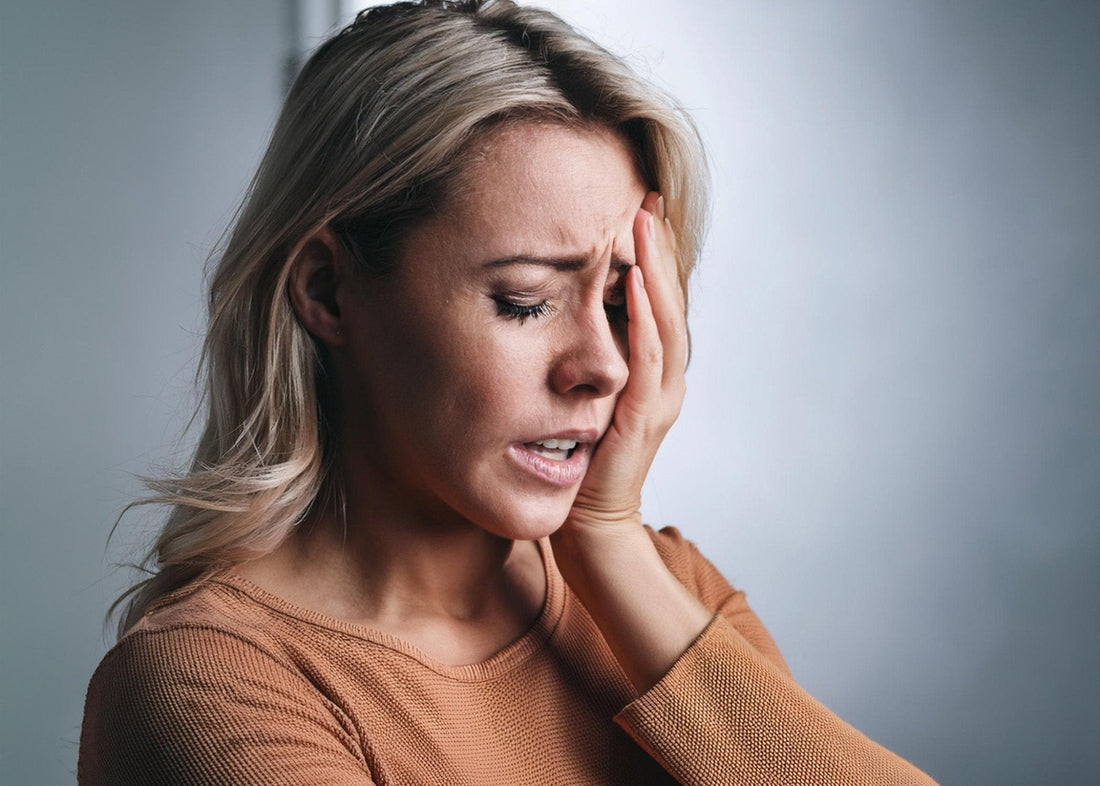
What Does Anxiety Feel Like? The Physical Symptoms
Share
Introduction
Anxiety often starts as a subtle sensation but can escalate into overwhelming physical reactions. Here’s what it might feel like:
- Racing Heartbeat: Your heart pounds as if you’re running a marathon, even when you’re sitting still.
- Shortness of Breath: It feels like an invisible weight is pressing on your chest, making it hard to take deep breaths.
- Sweating or Chills: Your body temperature fluctuates unpredictably, leaving you clammy or shivering.
- Stomach Troubles: Nausea, “butterflies,” or digestive discomfort are common as anxiety disrupts gut health.
- Muscle Tension: Your shoulders, neck, or jaw might ache from constant tightness.
These physical symptoms are your body’s “fight-or-flight” response kicking in, even when there’s no immediate danger.
The Emotional Toll of Anxiety
Anxiety doesn’t stop at physical sensations—it hijacks your thoughts and emotions too:
- Constant Worry: You fixate on “what if” scenarios, playing them on loop in your mind.
- Irritability: Small frustrations feel magnified, leaving you on edge.
- Fear of Losing Control: Anxiety can make you feel like you’re spiralling, even in safe situations.
- Overwhelm: Daily tasks, like replying to emails or socialising, suddenly feel impossible.
- Detachment: Some people describe feeling “numb” or disconnected from their surroundings.
For many, these emotions create a cycle: anxiety triggers physical symptoms, which then fuel more anxiety.
When Anxiety Becomes Debilitating
While occasional anxiety is normal, chronic anxiety can interfere with work, relationships, and quality of life. Seek professional help if:
- Symptoms persist for weeks or worsen over time.
- You avoid places, people, or activities due to fear.
- Anxiety leads to panic attacks (intense episodes of terror with dizziness, trembling, or chest pain).
How to Cope with Anxiety
- Grounding Techniques: Practice the 5-4-3-2-1 method: Name 5 things you see, 4 things you feel, 3 things you hear, 2 things you smell, and 1 thing you taste.
- Breathwork: Slow, deep breaths activate the parasympathetic nervous system, calming your body.
- Mindfulness and Meditation: Apps like Headspace or Calm offer guided sessions to refocus anxious thoughts.
- Physical Activity: Exercise releases endorphins, which counteract stress hormones.
- Talk to Someone: Therapy, support groups, or confiding in a trusted friend can provide relief.
Conclusion: You’re Not Alone
Understanding what anxiety feels like is the first step toward managing it. Whether your symptoms are mild or severe, help is available. By recognising the signs early and adopting healthy coping strategies, you can reduce anxiety’s grip on your life.
If this post resonated with you, share it with someone who might need it. For more mental health tips, subscribe to our newsletter or explore our resources hub to learn how to treat this and more.
References.
American Psychological Association (APA)
Anxiety: Symptoms and Coping Strategies
National Institute of Mental Health (NIMH)
Mayo Clinic
Anxiety Disorders: Symptoms and Causes
Mind (UK Mental Health Charity)
World Health Organization (WHO)


